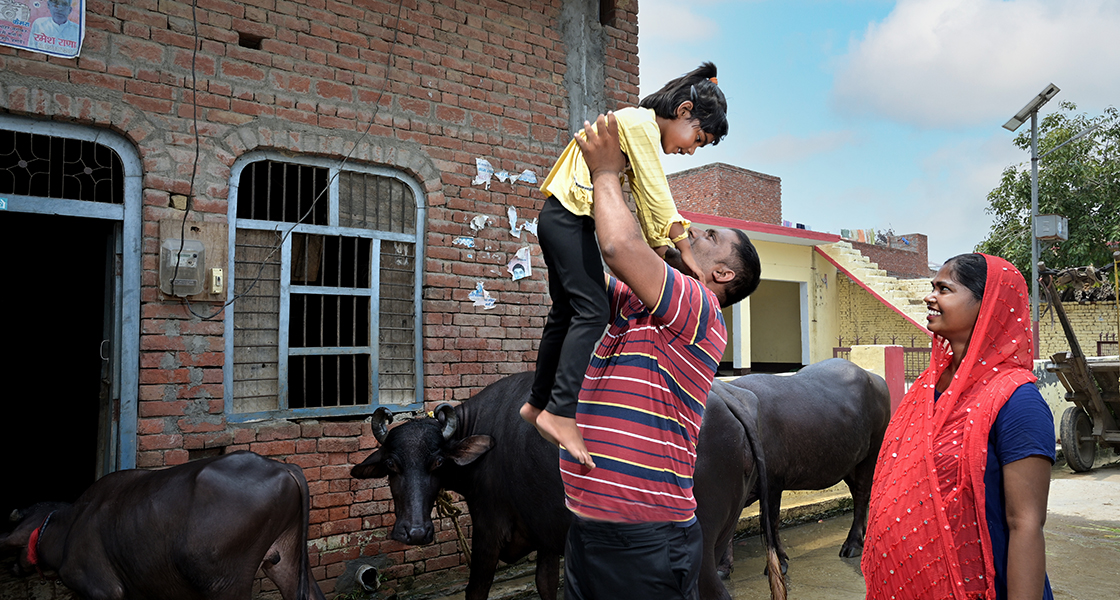
Since December 2019, PCI India is implementing a project that aims to assess the effectiveness of two innovative concepts in increasing the involvement of men in day-to-day decisions and activities related to nutrition and family planning. The project received funding support from the Bill and Melinda Gates Foundation (BMGF), and is being implemented in collaboration with Dalberg Designs across four blocks of Samastipur district in rural Bihar.
The innovative concepts to drive nutrition and family planning outcomes are grounded in social and behavior change models such as Fogg’s behavioral model, Integrative Model of Behavior Prediction and Socio-Ecological Model of Behavior Change. The concepts evolved through extensive literature review, expert interviews, iterative rounds of human-centered design research and co-creation with community members, live prototype testing, and a proof of concept phase with 2000 plus households, to be completed by December 2021. Each concept comprises of a set of interventions organized around knowledge, motivation, self-efficacy and enabling environments that drive the engagement of men in decisions and activities normally seen as ‘women’s domain’.
The two concepts are:
- Dekh-Rekh (Care & Nurture) aims to ‘make healthy habits your family goal’. Community facilitators provide target group couples with tools to visualise their nutrition habits, like a nutrition tracking chart, and relate them to their aspirations. This encourages men and women to have joint conversations on food choices, and make more informed and collaborative decisions on what they purchase, prepare and feed their children, with the intended outcome of improving diet diversity for children under 2 years.
- Hamari Shaadi, Hamare Sapne (Our Marriage, Our Dreams), aims to help participants ‘build savings, build a happy family’. Newly-wed and low parity couples enrol in an audio-visual financial education course where financial planning serves as an entrypoint for often taboo conversations on family planning, delaying, and spacing, by positioning it as a way to help couples reach their financial goals.
Each programmatic intervention has clear and specific impact pathways. They outline relevant barriers (e.g. social norms related to gender roles), outputs (e.g. men’s increased awareness of household’s nutritional needs), nudges (e.g. piggybacking on existing behaviors), behaviors (producing or purchasing nutritious foods), and outcomes (e.g. improved diet diversity for children) anchored to the behavior change frameworks.
While building the agency of individuals and couples, the concepts also impact system capacity, and inter-community trust and cohesion. We leverage self-help groups (SHGs) to get family and community buy-in, an important part of the enabling environment that improves behavioral outcomes. Project trained couples from the community, referred to as community resource persons (CRPs), deliver the interventions, creating a comfortable and trusting environment for both men and women to practice new behaviors
